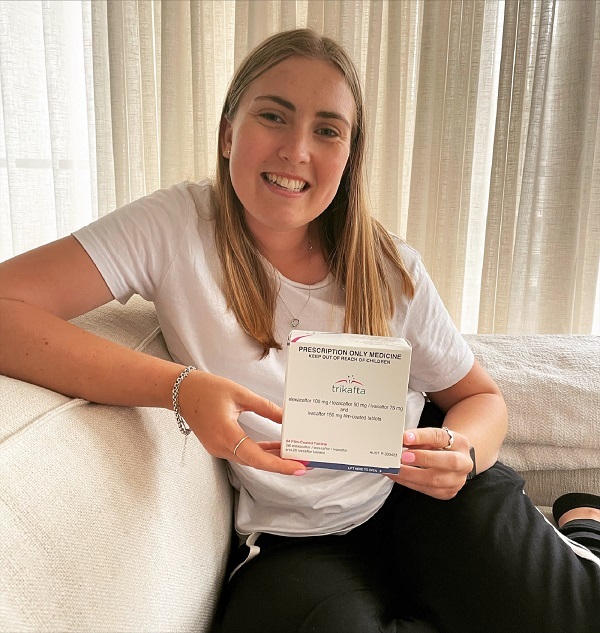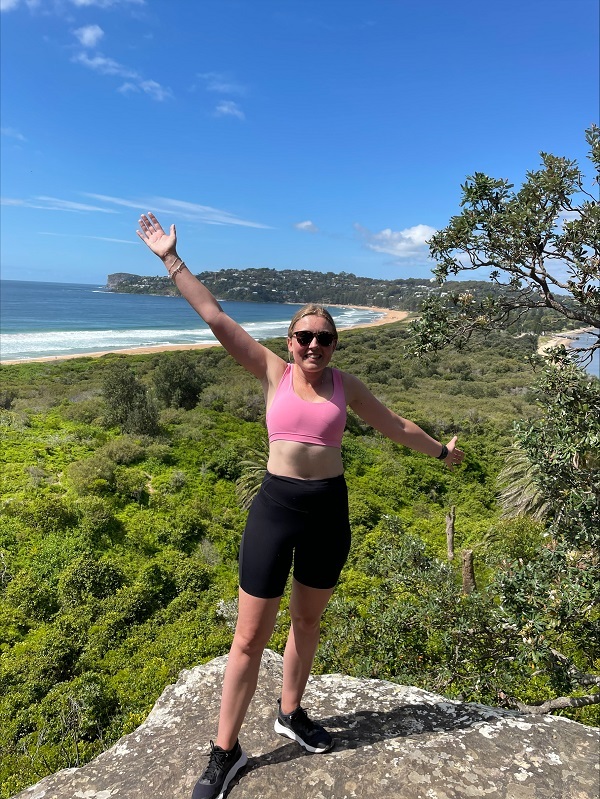Trikafta funding announcement ‘massive’ for Oamaru twins
Ashley Smyth
06 December 2022, 5:00 PM
 Emma and Jake Gawn (both 24), who have cystic fibrosis, are excited at the news Pharmac will be funding life-changing medication Trikafta from April next year. PHOTO: Supplied
Emma and Jake Gawn (both 24), who have cystic fibrosis, are excited at the news Pharmac will be funding life-changing medication Trikafta from April next year. PHOTO: Supplied Travelling the world is now an opportunity rather than a necessity for Jake and Emma Gawn, who will soon be able to access cystic fibrosis drug Trikafta in New Zealand.
The 24-year-old twins, who grew up and went to school in Oamaru, have both looked overseas to access the life-changing medication, but are ecstatic at the news it will be subsidised here, from April next year.
Emma recently left her job in Wellington as a digital marketer with Phil & Teds/Mountain Buggy, and moved to Australia, where Trikafta is already fully funded. She has been working as a nanny for her cousin’s 18-month-old twins.
After taking the medication for about six weeks, she hasn't looked back.
“Instead of waking up every morning and having a huge coughing fit and starting the day exhausted, I start the day like most other people.”
Government drug funding agency Te Pātaka Whaioranga Pharmac announced on Sunday (December 4) it had reached a provisional agreement with medicine supplier Vertex to fund Trikafta for New Zealanders with cystic fibrosis (CF) aged over six.
The latest announcement was “such a relief” and Emma was “over the moon” for the whole New Zealand CF community.
“Not everyone is in the position to be able to move country, so I'm so excited for those people who soon will get to experience this amazing drug . . . it will save so many lives!”
After seeing the amazing results Emma had on the drug, Jake has made plans to move to the United Kingdom in March next year, to access it himself. He has a UK passport through his English-born mother.
He has already resigned from his job in Wellington as a lecturer at the New Zealand Institute of Sport, and still plans to go, despite the latest announcement. He hopes to continue working in the sport and fitness field over there.
“It just means we’ll be able to go overseas and do our OE and be able to come back to NZ whenever we need to.”
He described Pharmac’s decision as a “massive development” that he was “very excited about”.
Emma would also stay in Australia for at least the next year, with her partner joining her over there in January.
“But it's awesome to know that if and when I want to come home, I am able to access Trikafta.”
Pharmac estimated funding Trikafta would provide CF sufferers about 27 more years at full health - which means a much longer, higher-quality life.
The cost of the medication was estimated at $330,000 per person per year, and was already fully funded in a number of other developed countries, including Australia and the United Kingdom.
It was estimated Trikafta funding would help about 330 New Zealanders in the first year, with that number increasing gradually each year.

First day of the rest of her life - Emma starts on "miracle drug" Trikafta. PHOTO: Supplied
Living with cystic fibrosis
Before Emma began on Trikafta, her day would begin with a “huge coughing fit”, leaving her exhausted.
“I then do my nebuliser (a machine that converts liquid medication into a fine mist) and acapella (a device to help clear phlegm from her lungs) and have another big cough while doing my lung-clearing exercises.”
She takes insulin for CF-related diabetes, along with her morning medication.
“I would often cough on and off throughout the whole day. Take Creon and insulin every time I eat, and then at the end of the day take my evening tablets, and nebulisers and normally end the day with another coughing fit.”
She said most people didn’t know she had CF, which was “a good and bad thing”.
“When I was younger, I didn't want people to know I had it, as I also thought people might look at me differently, but then it also means people don’t realise all the extra shit I was having to deal with behind the scenes.”
Jake’s mornings are much the same as Emma’s were.
A good hour and a half every morning he dedicated to nebulising hypertonic saline, doing breathing exercises and lung clearance, a sinus rinse, insulin and taking “a dozen” pills to get him functioning for the day ahead.
He also takes Creon pills to digest fat, and insulin to control his CF-related diabetes every time he eats, throughout the day.
“Another aspect I also like to consider part of my treatment, is regular exercise, as this helps with keeping my lungs clear,” he said.
When Emma was a child, she had a collapsed lung at three.
A major lung infection at eight required a long course of steroids and resulted in her developing CF-related diabetes.
Up until she was 18, she would have annual hospital admissions to help her lungs.
“I considered myself relatively healthy. I got to play lots of sports, hang out with my friends and do what every teenager wants to do, with just a lot more extra 'stuff' most people didn’t know about.”
At university, while she was studying for a bachelor of commerce, she could feel her lungs start to struggle for the first time in her life.
“My yearly hospital admissions turned into two or three a year, which meant having to get extensions for university assignments . . . and simple tasks and exercises I could normally do easily started to become a lot harder.”
Life became increasingly more difficult for Emma. Once she began work in Wellington, she would often have to take days off. She could no longer run or play squash, and she felt exhausted constantly.
“I knew things had to change.”
She said the illness was often described as “feeling like you are breathing through a straw”.
“I never felt like I could truly get a deep breath.”
Jake describes his experiences as similar to Emma’s. He is often fatigued, and also has joint pain.
Seeing how Trikafta has helped Emma, he is “really excited” to see what it might do for him.
“I’m fortunate that I keep fit and healthy now, but from what Emma has said, I’m looking forward in the short term to the increased energy and being able to train and play sport more.
“Long term, I’m looking forward to hopefully the reduced need for daily treatments."

Emma after walking up to the Barrenjoey Lighthouse, "which involved a lot of stairs" at Palm Beach, in Sydney, after a month on Trikafta. She couldn't believe how easy to was. PHOTO: Supplied
Life with Trikafta
After taking Trikafta, Emma describes herself as a different person.
“I no longer cough and I haven’t for the last two weeks, which is crazy!"
She has more energy and is excited to just be able to breathe.
“I have got back into the gym, squash and running and it is so much easier, like, I honestly can’t believe it.
“Being able to breathe makes these things so much better, and more enjoyable!”
Emma still needs her nebulisers, and continues to take her medication and insulin, but with the hope that eventually, over the next few months, these can be reduced.
“So apart from the coughing, my day is really the same as before, but just everything is easier.”
While the twins are looking forward to exploring other countries, they both see their long-term futures back in New Zealand with their friends and family. Being able to access Trikafta now makes this possible.


